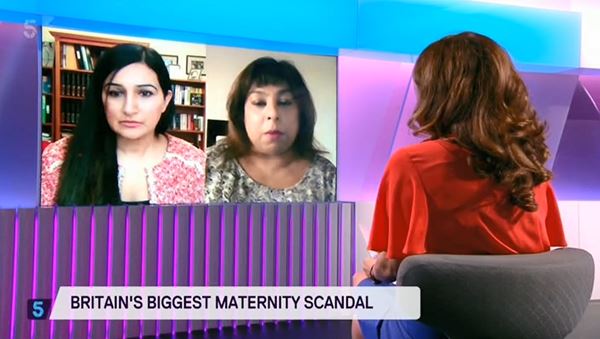Maternity care at the Trust had been the subject of no fewer than six separate inquiries, including one by the Royal College of Obstetricians and Gynaecologists. The Ockenden inquiry into what has been described as the ‘largest maternity scandal in NHS history’ initially resulted from concerns raised by two couples whose babies had died shortly after birth in 2009 and 2016. At first, it appeared that only 23 families were involved, however as the inquiry team appealed for those affected to get in touch, by July this year the number of cases under investigation had grown to 1,862.
Speaking over video link to families this morning, Donna Ockenden indicated that her initial report is in relation to 250 cases covering the period from 2000 to 2019 and includes the 23 cases initially mandated as part of the inquiry commissioned by the then Health secretary Jeremy Hunt. She said that there were some cases that had come to light before 2000 and that those too would be considered by the inquiry in due course.
The report, available now here, includes seven ‘Immediate and Essential Actions’ which are considered necessary to ensure safe practice in maternity wards at SaTH and maternity services across the NHS and 27 recommended local actions for learning, including:
- Neighbouring Trusts to work collaboratively together to ensure that local investigations into serious incidents have external oversight,
- The development of maternal medicine regional specialist centres - identified as an urgent national priority.
- Families to be listened to more effectively with non-executive directors on Trust Boards to have oversight of maternity services with specific responsibility for ensuring that women and family voices are represented at Board Level.
- A multi-disciplinary team (MDT) approach to be adopted with at a minimum of two daily, consultant-led, ward rounds to be conducted, day and night seven days a week.
- Complex cases to be identified for Consultant led care.
- The importance of obtaining informed consent from patients about their care and the need for greater involvement of families in any investigations when things go wrong
One area Donna Ockenden highlighted in particular was the need to review at every ante-natal appointment any initial risk assessment to consider the most appropriate care and procedure for patients.
The announcement of a ‘New Improvement Alliance’ whereby University Hospitals Birmingham NHS Foundation Trust (UHB), a leading teaching hospital, provided leadership expertise to SaTH in August of this year is a step in the right direction, but the report suggests things have to go much further. Perhaps the most significant failure highlighted in a leaked early draft of the report in November 2019 was what it called a long-standing culture at the Trust which was ‘toxic to improvement effort’.
These, and several other failings, are illustrated by the case of Shoosmiths client Kamaljit Uppal, who lost her baby son in April 2003 following his delivery at Telford hospital and only discovered she had been a victim of the Shrewsbury maternity scandal after she read stories in the press.
Kashmir Uppal, Shoosmiths medical negligence partner who represents many families who suffered tragic losses due to maternity care failures at SaTH said:
“I welcome the recommendations from this report, but the investigation and report will stand for nothing if the recommendations are not implemented. Donna Ockenden has set out seven recommendations which she has described as “immediate and essential actions” and I would assume that these will be implemented within the next few months if there is to be any hope of improving maternity care across the UK.”
Media coverage
Click below to watch the Channel 5 News - 10 December 2020
Disclaimer
This information is for educational purposes only and does not constitute legal advice. It is recommended that specific professional advice is sought before acting on any of the information given. © Shoosmiths LLP 2025


















